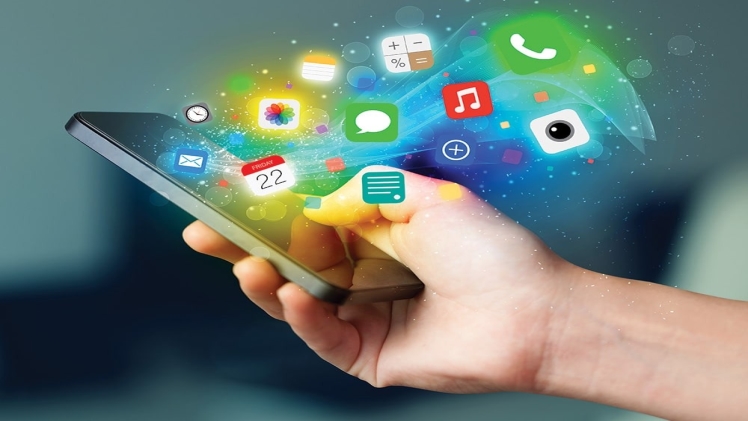Introduction:
In the age of digital connectivity, mobile applications, or simply “apps,” have become an integral part of our daily lives. From the moment we wake up to the time we go to bed, these small pieces of software play a crucial role in shaping how we communicate, work, entertain ourselves, and even maintain our health. In this article, we will explore the evolution of apps, their impact on various aspects of our lives, and the ongoing trends that continue to redefine the way we interact with technology.
The Evolution of Apps:
The concept of applications predates the modern era of smartphones. Early computers had software programs that performed specific functions, but it wasn’t until the advent of mobile devices that the term “app” became ubiquitous. The launch of Apple’s App Store in 2008 marked a significant milestone, allowing users to easily browse, purchase, and download applications directly to their iPhones. This approach democratized software distribution, empowering developers to create a diverse array of apps catering to different needs.
Communication and Connectivity:
Perhaps the most transformative impact of apps lies in the realm of communication. Messaging apps like WhatsApp, Messenger, and Telegram have revolutionized the way we connect with others. Instantaneous text messages, voice calls, and video chats are now standard features, breaking down geographical barriers and fostering global connections. Social media platforms like Facebook, Instagram, and Twitter have become virtual communities, enabling users to share their lives, opinions, and experiences with a vast audience.
Productivity Tools for the Modern World:
Apps have also become indispensable tools for productivity, transforming the way we work and organize our lives. Whether it’s document creation, project management, or collaborative teamwork, apps like Microsoft Office, Google Workspace, Slack, and Trello have streamlined processes, making work more efficient. With the rise of remote work, these productivity apps have become essential in maintaining seamless communication and collaboration among teams scattered across different locations.
Entertainment On-Demand:
The entertainment landscape has undergone a seismic shift with the rise of apps. Streaming services like Netflix, Hulu, and Disney+ have redefined how we consume movies and TV shows. These platforms offer on-demand access to a vast library of content, allowing users to watch what they want, when they want. Music streaming apps like Spotify and Apple Music have similarly revolutionized the music industry, giving users instant access to an extensive catalog of songs from various genres.
Gaming Anytime, Anywhere:
The gaming industry has experienced a paradigm shift with the proliferation of gaming apps. Mobile gaming, facilitated by smartphones and tablets, has become a massive industry in its own right. Games like Candy Crush, Fortnite, and PUBG Mobile boast millions of users worldwide, blurring the lines between casual and hardcore gaming. The convenience of gaming on the go has attracted a diverse audience, further solidifying the importance of mobile apps in the entertainment landscape.
E-Commerce and Mobile Payments:
Apps have transformed the way we shop and conduct financial transactions. E-commerce giants like Amazon, Alibaba, and eBay have extended their reach through mobile apps, providing users with a convenient way to browse, shop, and make secure transactions. Mobile payment solutions, including Apple Pay, Google Pay, and various banking apps, have reduced the reliance on physical cash and cards, offering a seamless and secure method of completing transactions.
Health and Wellness:
Apps have even made inroads into the realm of health and wellness. Fitness tracking apps like Fitbit and MyFitnessPal have turned our smartphones into personal health assistants, helping users monitor their physical activity, nutrition, and overall well-being. Mental health apps provide resources for stress management, meditation, and mindfulness, emphasizing the potential of apps to positively impact our holistic health.
Emerging Technologies and Future Trends:
Looking ahead, the future of apps is intertwined with emerging technologies that promise to reshape our digital landscape. Augmented Reality (AR) and Virtual Reality (VR) are poised to provide immersive experiences, from gaming and entertainment to education and virtual travel. Artificial Intelligence (AI) and Machine Learning (ML) will enhance personalization, offering users more tailored and intelligent app interactions.
The Internet of Things (IoT) will further extend the reach of apps, connecting them to a network of smart devices in our homes, cars, and cities. The interconnectedness of these devices, facilitated by mobile apps, will create a seamless and integrated user experience, where our devices work together to anticipate and fulfill our needs.
Conclusion:
In conclusion, the evolution of apps has been nothing short of revolutionary, transforming the way we communicate, work, and entertain ourselves. From humble beginnings to becoming integral parts of our daily routines, apps have played a pivotal role in shaping the digital era. As we look to the future, the continued integration of emerging technologies promises to push the boundaries of what is possible, opening up new avenues for innovation and connectivity. The app revolution shows no signs of slowing down, and as technology continues to evolve, so too will the impact of these digital companions on our lives.

